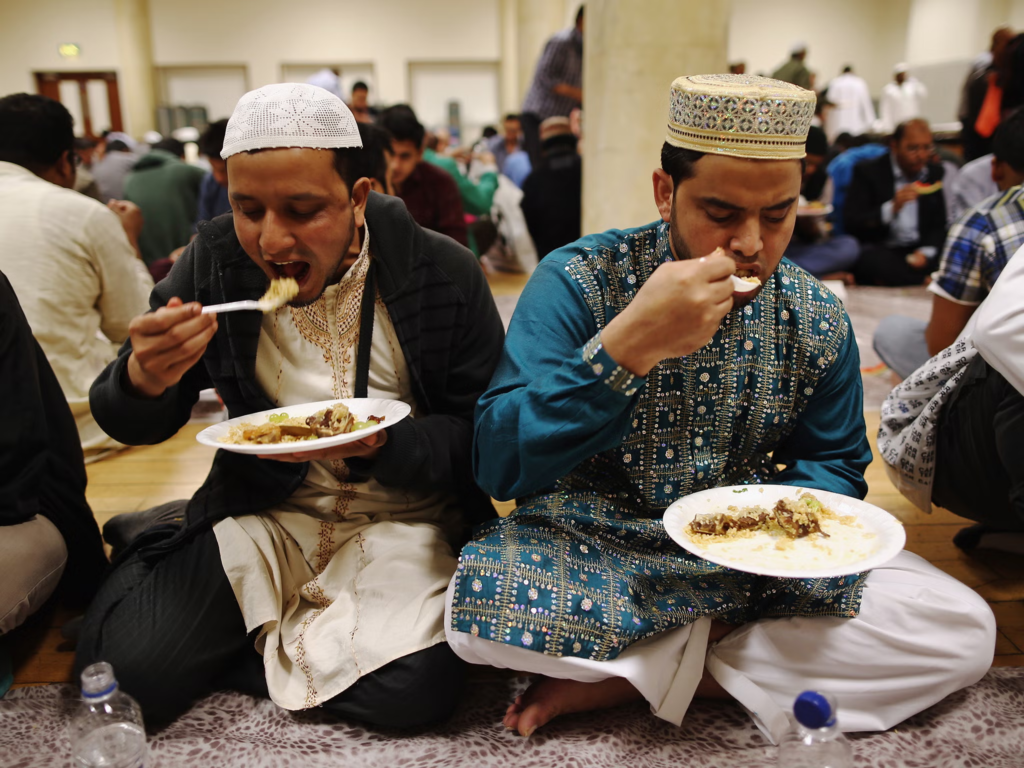As workplaces strive to be more inclusive and diverse, it’s essential to recognize and respect the religious practices of all employees, including during significant periods like Ramadan. Ramadan, the ninth month of the Islamic lunar calendar, is a time of fasting, prayer, reflection, and community for Muslims worldwide. For non-Muslims, understanding how to support their Muslim colleagues during this time demonstrates respect and fosters a harmonious work environment. So, how can non-Muslims respect Ramadan observances in the workplace? Let’s delve into practical strategies and insights to ensure inclusivity and understanding.
Understanding Ramadan

Before delving into how non-Muslims can support Ramadan observances in the workplace, it’s crucial to grasp the significance of this holy month for Muslims:
- Fasting: Muslims abstain from food, drink, smoking, and other physical needs from dawn until sunset during Ramadan.
- Prayer and Reflection: Ramadan encourages increased prayer, Quran recitation, and spiritual reflection.
- Community and Charity: It’s a time for increased acts of kindness, charity, and community engagement.
With this understanding in mind, non-Muslims can better appreciate the importance of accommodating and respecting Ramadan observances in the workplace.
How Can Non-Muslims Respect Ramadan Observances in the Workplace?

1. Be Mindful of Eating and Drinking
During Ramadan, Muslims fast from sunrise to sunset, which means refraining from food and drink during daylight hours. Non-Muslim colleagues can show respect by being mindful of their eating and drinking habits:
- Avoid eating or drinking openly at your desk or in communal areas.
- Schedule team lunches or coffee breaks outside of fasting hours.
- Be considerate when planning meetings or events, opting for times outside of fasting hours whenever possible.
2. Create a Supportive Environment
Fostering a supportive workplace environment during Ramadan is essential for all employees:
- Encourage open communication and empathy. Allow Muslim colleagues to discuss their needs and preferences during Ramadan without judgment.
- Offer flexibility with work schedules where feasible. Consider adjustments to accommodate prayer times or allow for shorter lunch breaks to accommodate fasting employees.
- Educate coworkers about Ramadan. Organize informational sessions or provide resources to increase understanding and awareness.
3. Respect Cultural Sensitivities
Respecting cultural sensitivities is key to fostering a respectful workplace environment:
- Avoid scheduling important meetings or events on religious holidays, such as Eid al-Fitr, which marks the end of Ramadan.
- Be mindful of dress codes. Respectful attire, such as modest clothing, is appreciated during Ramadan and other religious occasions.
- Refrain from making assumptions or judgments based on dietary restrictions or religious practices. Embrace diversity and inclusion in all interactions.
FAQs About Respecting Ramadan in the Workplace
Q1: Is it appropriate to wish someone “Happy Ramadan” at work? A: Yes, it’s generally well-received to offer Ramadan greetings as a sign of respect and acknowledgment of your Muslim colleagues’ observance.
Q2: How can I support a fasting colleague during Ramadan? A: Offer support and understanding, refrain from eating or drinking in front of them, and be mindful of scheduling meetings or events during fasting hours.
Q3: Are there specific foods I should avoid bringing to work during Ramadan? A: While there are no strict rules, it’s considerate to avoid bringing strong-smelling or tempting foods to the workplace during fasting hours.
Conclusion
Inclusivity and respect are the cornerstones of a harmonious workplace environment, especially during religious observances like Ramadan. By understanding the significance of Ramadan for Muslim colleagues and implementing practical strategies to accommodate their needs, non-Muslims can demonstrate respect and foster a supportive workplace culture. Remember, small gestures of kindness and understanding can make a significant difference in creating an inclusive work environment for all. So, whether it’s being mindful of eating habits or offering support and flexibility, let’s strive to respect Ramadan observances in the workplace and celebrate diversity together!


